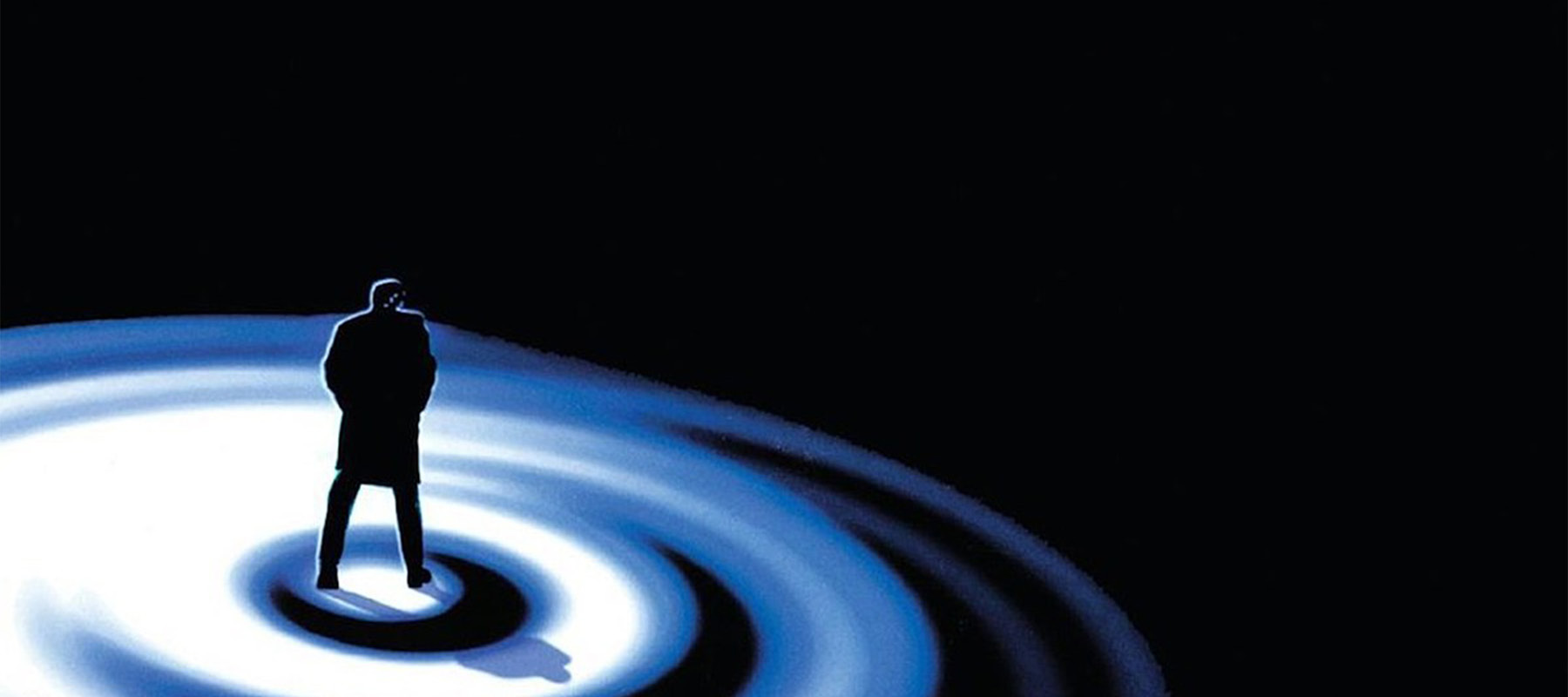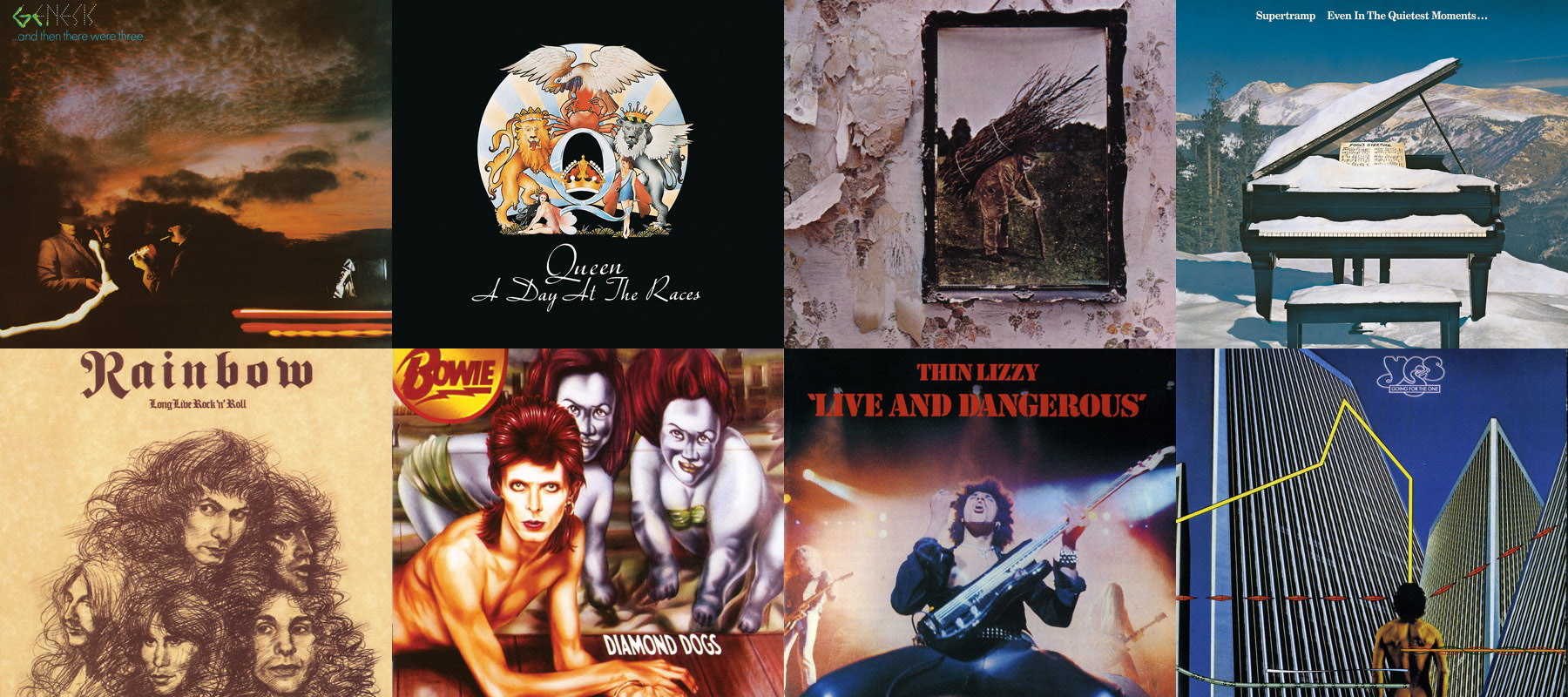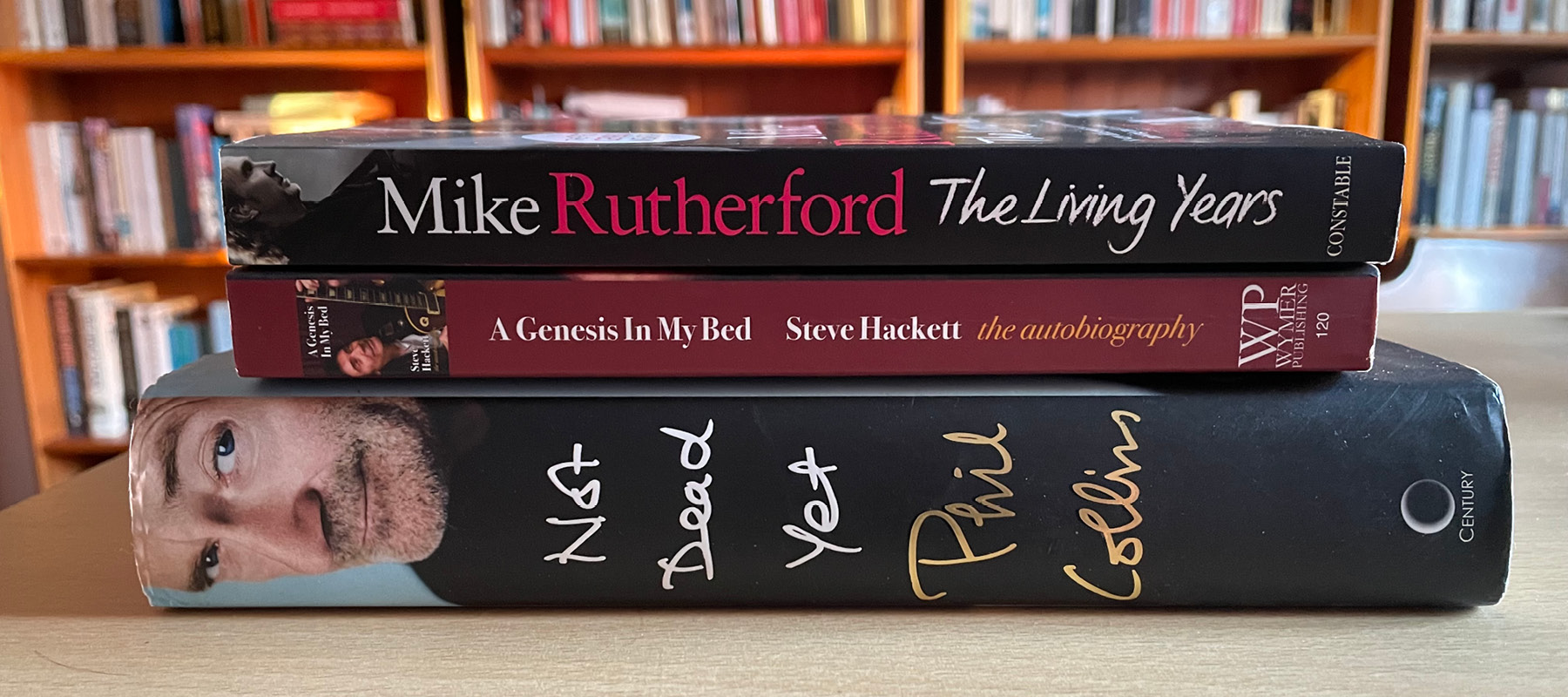Calling All Stations: Not the Worst Genesis Album

Setting to one side From Genesis to Revelation, essentially a pre-Genesis album written and recorded by schoolboys — literally so: they were still pupils at Charterhouse when the first demos were put down — Calling All Stations is almost certainly most fans’ least favourite Genesis album. It’s the embarrassing uncle, the black sheep of the family, the unloved one, the one that nobody mentions.
It was released in 1997, five or so years after We Can’t Dance and one year after the official announcement that Phil Collins — drummer, lead vocalist and one-man 80s hit machine — was leaving the band. And then there were two.
Enter Ray Wilson on vocals, ex-singer with a minor-league outfit called Stiltskin, whose fifteen minutes in the spotlight — a number-one single — came courtesy of a Levi’s advert. And then there were three … again. It was a distinctly odd choice, with age and musical experience only two of the glaring differences between, on the one hand, Tony Banks and Mike Rutherford — ex-public school, softly-spoken practitioners of traditional English reserve, home-counties chaps to the marrow — and, on the other, Wilson, a brash working-class lad from Scotland.
In relative terms — relative, that is, to previous Genesis record sales — the album bombed, as did the subsequent tour: the US leg was cancelled due to poor ticket sales. Plans for a second album were scrapped out of concern for the Genesis name. And then there were none.
Looking back, Tony and Mike damned the album with the faintest of praise:
I felt that the … album was OK. (Mike Rutherford)
Quotes from Genesis — Chapter and Verse (2007)
I … thought the album turned out pretty well. (Tony Banks)
I remember checking out the lead-off single, Congo, a couple of times and taking an immediate dislike to it, not least the cringeworthy attempt at an arty, politically on-message video. Middle-aged men desperately trying to look cool didn’t work for me (aged 30 at the time). On the back of Congo, I gave the album one highly sceptical and cursory listen, decided it was crap and duly parked it for the best part of twenty years.
Out of curiosity, I dusted it off — literally — just a couple of years ago and gave it a spin. Only two or three tracks stood out on first listen, but I persisted and the whole album soon started to grow on me.
Eleven tracks, 67 minutes of music — and no out-and-out fillers or obvious padding. It certainly starts strongly, the title track a moody and dramatic guitar-driven affair with BIG Collins-esque drums and a soaring chorus. Congo isn’t as poor as I remember, though the inclusion of African rhythms to bookend the song invites inevitable comparisons — and not flattering ones — with Peter Gabriel’s epic Biko.
Even the more run-of-the-mill efforts — Small Talk, If That’s What You Need, There Must Be Some Other Way — are listenable and certainly no weaker than the selection of songs on side two of their self-titled 1983 album (the one that starts with Mama, a song that isn’t as strong as people say it is). The Abacab album, to make another comparison, runs for 47 minutes and includes two of the weakest songs in the entire Genesis canon — Who Dunnit? and Another Record.
Calling All Stations isn’t classic Genesis, of course, but it sounds good, there are some great hooks and instrumental passages dotted around, and Ray can certainly sing — a husky voice, deeper and less warm than Phil’s, closer in fact to Peter Gabriel’s.
Tony and Mike are in charge, of course. Drafted in after much of the music had already been written, Ray’s creative input was apparently minimal — a musical idea here, some lyrics there. I have recently bought Banks Vaults, a box set of Tony’s solo albums. A Curious Feeling apart, I am hearing his solo stuff for the first time and currently playing it non-stop. Much of it is great; some of it is outstanding. There are echoes of his solo work, particularly from Still and Strictly Inc, all through Calling All Stations. Other than The Living Years, I am unfamiliar with the back catalogue of Mike and the Mechanics — Mike’s extra-curricular project — but If That’s What You Need is what I imagine a typical Mechanics song sounds like.
When Calling All Stations is good, it’s very good. Shipwrecked, for example, has a great chorus. Anyone familiar with Morrissey’s work might note a similarity between the main keyboard riff and a fairly obscure Morrissey b-side called Lost (released, coincidentally, in the same year).
As on the previous We Can’t Dance album, the inclusion of longer songs allows the band to break free from the verse-chorus-bridge straitjacket. The Dividing Line runs to eight minutes and features some terrific keyboard lines, reminding me of Tony’s excellent The Serpent Said from his 1995 album Strictly Inc.
It also sounds like they enticed Phil back to play drums on the track. In fact, the drumming throughout the album is strikingly good, especially considering that Genesis were without a permanent drummer. The stool at the back was occupied by two guest musicians, one of whom — Nir Zidkyahu — was then invited on the subsequent tour.
The lyrics of One Man’s Fool (among other songs) may be distinctly uninspired at times — “One man’s hot is another man’s cold” — but its overall message about the dangers of (religious) fanaticism, written pre-9/11, of course, resonates now more than ever. This, the closing song, was the first to really hold my attention. At nine minutes, it’s the longest of the album’s eleven tracks, shifting gear midway through to conclude the album in style. Tony — the writer, presumably — sees it differently. Speaking about writing music with Phil’s voice (and creative input) in mind, he is quoted thus:
The first half of the song was good, but the second half suffered. If Phil had been there I just know it would have just taken off and gone somewhere else.
Tony Banks, quoted in Genesis — Chapter and Verse (2007)
Alien Afternoon is the quirkiest song on the album. It quickly settles into a fairly unremarkable groove: a humdrum tune with humdrum lyrics about a humdrum existence. Something seems to happen to our narrator mid-song — a paranormal episode or extra-terrestrial experience of some kind. Ghostly voices ring out like an angelic choir — “We are home / We are your home / We are all your home” — with suitably unsettling and other-worldly mood music from Tony and Mike. A close encounter of the Genesis kind. Great stuff.
Again, it very much reminds me of another song — probably my favourite by Simon and Garfunkel, The Only Living Boy in New York. Paul is fed up, stuck at home writing songs for the new album while Art is away in Mexico pursuing a film career. Then we hear Art’s heavily treated vocal calling from the ether — “Here I am” — as if he’s hearing Paul from afar.
Genesis excel at songs dealing with despair, pain and loss — the live version of Afterglow on Seconds Out towers above everything. Not About Us sounds like classic Mike writing. It is not unlike his Snowbound, a favourite from And Then There Were Three. Along the same lines, Uncertain Weather is probably the best song on the album. The ease with which the listener can project his or her own experiences onto lines about fading photographs and fading memories gives the song added power:
All gone long ago
Uncertain Weather
Leaving no trace
Disappearing like smoke in the wind
Goosebumps-good. Alas, the spell is broken by the inclusion of awful half-spoken lines midway through the song.
Overall, then, Calling All Stations is not bad at all: it’s time to bring the uncle in from the cold. For readers who know their Genesis history, it’s nowhere near as good as anything from the 70s but, especially if shortened to about 50 minutes (the length of a typical first-released-on-vinyl Genesis album), it would certainly stand comparison with anything released post-Duke (1980). It is better than Abacab (1981) and Genesis (1983), and probably on a par with Invisible Touch (1986) and We Can’t Dance (1991).






I remember when CAS came out in 1997. I was 13 year old Finnish fan and I remember reading one article about Genesis making a new album without PC, so there was really no big hype for it. The first single Congo was played on the radio and I remember it sounding not much like Genesis. The music videos for Congo and Shipwrecked were shown on the local Music Tv. The album also charted somewhere in the top 20 if I remember correctly. When the album was released I gave it my first listen I remember being a little bit shocked by the heaviness of the title track and not liking all the synth tones in some songs and I also immediately found the music lacking from what I’ve used to hear from Genesis. I kept listening to the album and eventually took it for what it was.
The concert in 1998 was a big deal for me of course, but the big video screens were missing and about 8000 people showed up (the venue capacity being 13 000). The concert was loud as f*ck and the crowd reaction quite modest. I remember some people dancing to invisible touch and Ray Wilson playing harmonica on I Can’t Dance. There was a short interview for Music TV shot on an elevator in a hotel with Tony, Mike and Ray. The band looked quite relaxed and seemed to be enjoying themselves, but pretty soon after the tour was finished the news came out that things were not doing well for Genesis and that the band would soon be over (even though an official statement never came from the band or the record company).
Today I do believe that the album was an unnecessary misstep for the band, but has some nice tunes and instrumental passages (most notably The Dividing Line and There Must Be Some Other Way). The title track is very good and quite unusual rock song to begin with. Mike and Tony must have been out of their heads thinking that they would tour large arenas in the US without their star Phil Collins. Ray Wilson suffered from depression afterwords and I’ve red that the touring drummer Nir Z was also pretty disappointed that they didn’t continue.
CAS indeed was a sad record in the end but despite it’s flaws, it’s still one of those later period Genesis records that I still revisit at least for a song or two. The drums sound really good on Dividing Line and sometimes I just have to hear Alien Afternoon, even though it’s a silly song but with a great ending! So it’s a pretty unique bad record that you have to love to enjoy.
Hi. Thank you for reading my blogpost and taking the time to write such a detailed post of your own. I greatly appreciate it.
Calling es mi quinto disco en el ranking de Genesis, si hubieran grabado otro disco mas estoy convencido que esa formacion se hubiera consolidado
I’m afraid I don’t speak Spanish, but thank you for taking the time to read my blog and to post a comment. It is much appreciated.
Google Translate renders this as: Gracias por tomarse el tiempo de leer mi blog y publicar un comentario. Es muy apreciado.
The original message is rendered thus: ‘Calling is my fifth album in the Genesis ranking, if they had recorded another album more I am convinced that this formation would have been consolidated.’
I always liked Calling All Stations … one of my “go to” Genesis albums … way better, for me, than We Can’t Dance, And Then There Were Three (never ever got it), and a better listen overall than Duke … it’s probably the one I play most ’cause it just “works”. That does not mean that it is better than Foxtrot, Selling England, Trick of the Tail, Seconds Out … but I do play Calling All Stations a-ways-more than the others. When you get a chance to hear all the B-sides (check out the YouTube Calling All Stations Deluxe by R&UT) then you realise that, with a different track selection, Tony and Mike could have really had a genuinely great album on their hands. I really like the vocals on all the material and, for me, this was a missed opportunity for the band. Just my view. CMcG, Aberdeen, Scotland.
First of all, thanks for taking the time to read my blog and to add a comment. I really appreciate it.
I have come across the R&UT channel on YouTube. There is some phenomenal stuff on there. Based on your recommendation I will definitely search out the Calling All Stations upload.
And once again, many thanks!